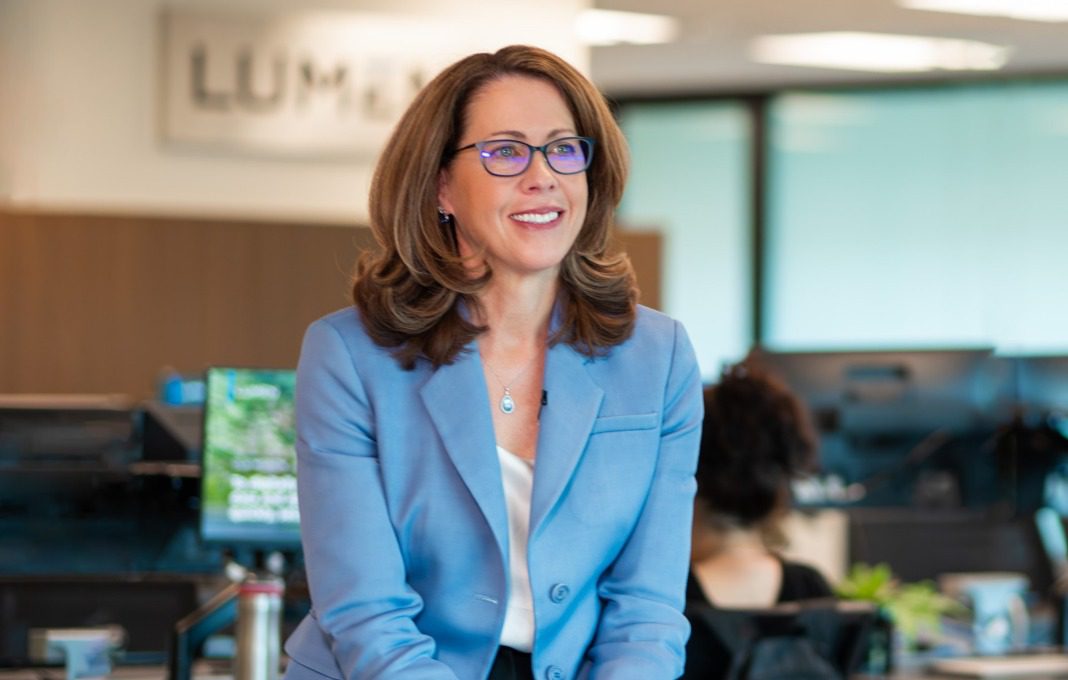Lumen CEO Kate Johnson: ‘Be A Learn-It-All, Not a Know-It-All’


Kate Johnson, the president and CEO of Lumen Technologies, thinks we need fewer know-it-alls and more learn-it-alls leading businesses. As she explains it, leaders owe it to their teams to get past thinking of themselves as the smartest people in the room.
Johnson developed her particular leadership theory on, of all places, the tennis court. “Just as you acquire new shots and approaches to tennis, you have to be constantly looking for new ideas and wanting to learn everything you can in business,” she says in a far-ranging interview. “You have to be nimble and agile enough to respond to any new situation or challenge.”
The key to corporate agility, Johnson says, involves being curious and thinking through problems collaboratively. “That is the difference between a know-it-all and a learn-it-all,” she said.
It may seem like a stretch to try to apply the same mindset on the tennis court to the corner office of one of the largest providers of digital connectivity to businesses and the government. But Johnson insists the “thinking game” is the same.
“We have to be agile, we have to be curious, we have to be flexible, we have to have hypotheses, and we have to have mastery of the available data,” Johnson says. “But we have to leave space to process and to change course quickly and effectively.”
It’s not going to be one person who has all the answers, she adds. “It’s going to be the company that figures out how to tap into the value of these assets the fastest. That’s the company that’s going to win.” Listeners will learn the principles Johnson champions in the workplace including:
Johnson also notes how much people, in businesses and in our daily lives, have changed their mindsets in recent years. “The old Corporate America structure expected leaders to be the smartest ones in the room, mastering their business and answering every question as if they had always known the answer,” she shares.
She says that the old model doesn’t work anymore. “Anybody who thinks they have all the answers is going to be in a bit of trouble. The mindset and the systems that we build have to account for the world around us, which changes every second in very unpredictable ways.”


0

1:00 - 5:00 pm
Over 70% of Executives Surveyed Agree: Many Strategic Planning Efforts Lack Systematic Approach Tips for Enhancing Your Strategic Planning Process
Executives expressed frustration with their current strategic planning process. Issues include:
Steve Rutan and Denise Harrison have put together an afternoon workshop that will provide the tools you need to address these concerns. They have worked with hundreds of executives to develop a systematic approach that will enable your team to make better decisions during strategic planning. Steve and Denise will walk you through exercises for prioritizing your lists and steps that will reset and reinvigorate your process. This will be a hands-on workshop that will enable you to think about your business as you use the tools that are being presented. If you are ready for a Strategic Planning tune-up, select this workshop in your registration form. The additional fee of $695 will be added to your total.

2:00 - 5:00 pm
Female leaders face the same issues all leaders do, but they often face additional challenges too. In this peer session, we will facilitate a discussion of best practices and how to overcome common barriers to help women leaders be more effective within and outside their organizations.
Limited space available.

10:30 - 5:00 pm
General’s Retreat at Hermitage Golf Course
Sponsored by UBS
General’s Retreat, built in 1986 with architect Gary Roger Baird, has been voted the “Best Golf Course in Nashville” and is a “must play” when visiting the Nashville, Tennessee area. With the beautiful setting along the Cumberland River, golfers of all capabilities will thoroughly enjoy the golf, scenery and hospitality.
The golf outing fee includes transportation to and from the hotel, greens/cart fees, use of practice facilities, and boxed lunch. The bus will leave the hotel at 10:30 am for a noon shotgun start and return to the hotel after the cocktail reception following the completion of the round.